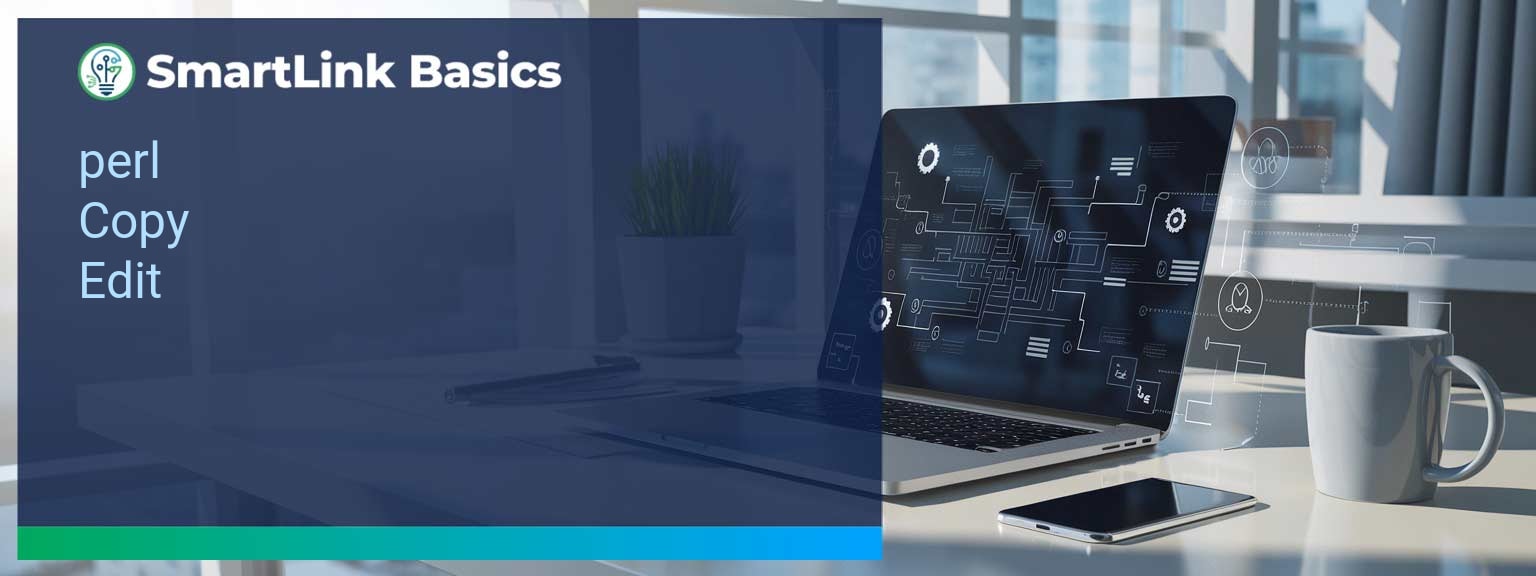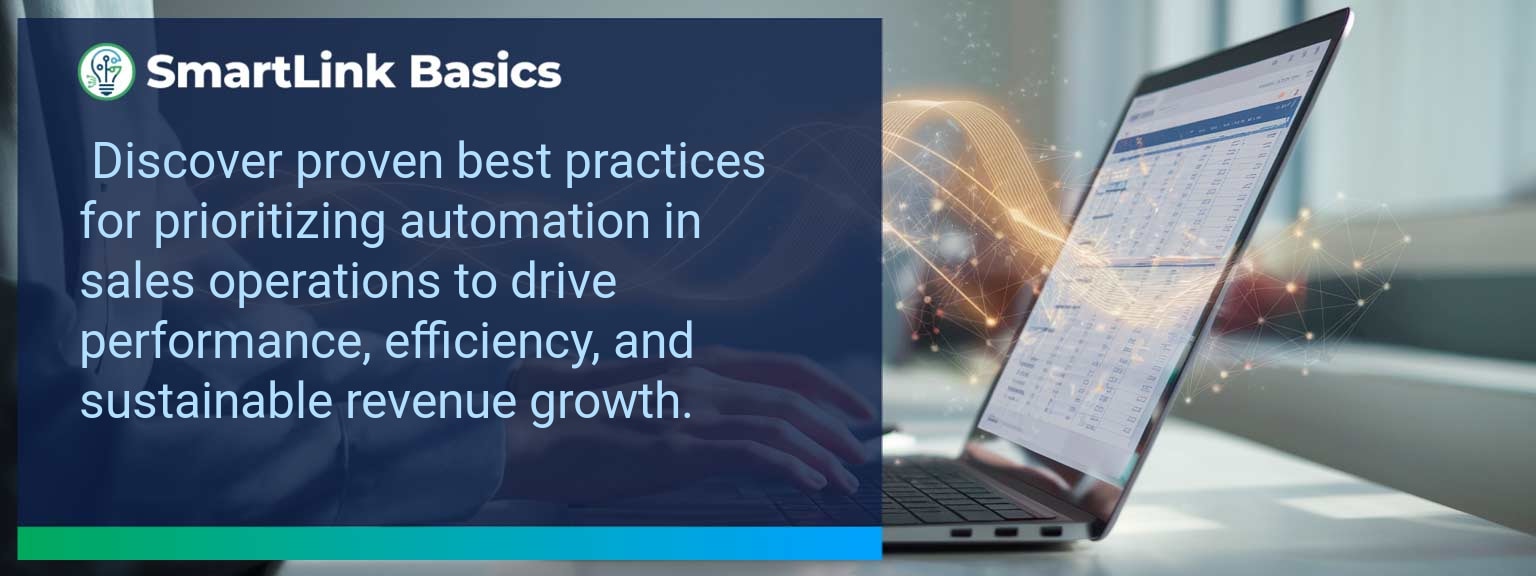Industry data shows that organizations adopting AI-driven automation achieve cost reductions of up to 30% while accelerating sales cycles by 20% or more (McKinsey, 2024). For sales leaders, AI automated workflows now define competitive advantage, enabling teams to reallocate time from repetitive tasks to high-value engagements. At SmartLink Basics, we help decision-makers implement these systems strategically, ensuring they integrate with existing revenue operations. In this article, you’ll see how AI automated workflows power business outcomes, the common obstacles that slow adoption, and practical steps to optimize processes. You’ll walk away with proven examples, a 90-day action blueprint, and measurable KPIs to track results.
- Automate repetitive administrative and CRM updates with AI.
- Integrate machine learning to personalize outreach at scale.
- Streamline approvals, quotes, and contract workflows for speed.
- Use predictive analytics to prioritize sales opportunities.
- Track adoption and performance with targeted metrics.
AI Automated Workflows: What Changed and Why It Matters
AI adoption has shifted from experimental to operational, making automated workflows a standard in high-performing sales organizations. The real advantage lies in combining workflow automation with artificial intelligence workflows to optimize every step of the revenue process. Sales leaders now use AI to synchronize touchpoints, reduce manual inputs, and ensure faster execution. For example, a B2B SaaS leader introduced automated lead enrichment and routing, cutting qualification time by 60%. Actionable insight: Audit processes for time-intensive handoffs and apply AI where repeatability is high.Redesign the Revenue Operating System With AI Automated Workflows
ICP, Segmentation, and Targeting AI-enabled segmentation uses historical wins, firmographic, and behavioral data to dynamically update ICP profiles. This ensures targeting precision without quarterly re-work. Pipeline Architecture Automated workflows push opportunities through the right stages based on engagement signals. AI flags at-risk deals for intervention. Plays and Messaging Integrated automation tools deliver personalized sequences based on buyer activity, increasing relevance at every touchpoint. Operating Cadence AI schedules follow-ups, forecast calls, and account reviews based on actual pipeline movement rather than static calendars. Actionable insight: Implement automation that adapts in real-time to both internal and buyer-driven events.Common Obstacles To Achieving Seamless Automation
The most frequent challenges are fragmented systems, inconsistent data quality, and cultural resistance. Without a unified data layer, automation amplifies errors rather than solving them. Coca-Cola Europacific Partners reported needing a full data governance upgrade before AI could improve sales workflows. Leaders must first assess infrastructure readiness and train teams to trust AI-influenced recommendations. Actionable insight: Before deployment, establish clean data practices and a single source of truth.Implementing AI To Optimize Workflows
Effective deployment of AI process optimization starts with mapping current-state processes, identifying friction points, and matching them with automation tools. For example, automating proposal generation based on CRM opportunity data can reduce turnaround from three days to one hour. Solutions combining business process automation platforms with machine learning integration enable continuous performance improvement. Actionable insight: Pilot in one high-impact stage, measure, and then expand.Tangible Benefits From Automated Processes
The benefits extend beyond time savings — sales leaders gain a scalable system. Tangible outcomes include faster quote-to-close, higher lead conversion, and better forecast accuracy. A manufacturing firm implemented AI-assisted order processing and cut errors by 40%, improving on-time delivery rates. Actionable insight: Track both speed and accuracy to measure workflow automation effectiveness.Metrics That Matter
| Category | Metric | Definition | Target |
|---|---|---|---|
| Leading | Workflow Completion Rate | % of automated sequences executed without manual intervention | 95%+ |
| Leading | AI Suggestion Adoption Rate | % of AI-generated action recommendations executed by reps | 80%+ |
| Lagging | Cycle Time Reduction | Decrease in time from lead entry to closed-won | 20%+ |
| Lagging | Revenue Per Rep | Average sales revenue generated per sales rep per quarter | +15% YoY |
| Quality | Automation Error Rate | % of workflows that trigger incorrect outcomes | <1% |
| Quality | Customer Satisfaction Post-Automation | Average CSAT score after automation implementation | ≥ 4.5/5 |
Innovations And Next Steps For AI Automation
Emerging capabilities like AI-generated playbooks, intent-driven dynamic routing, and integrated AR for virtual product demos are shaping the next wave of sales automation. Companies integrating these tools early will outpace competitors in speed and personalization. Actionable insight: Stay ahead by testing emerging automation features quarterly and aligning them with evolving buyer expectations.Get the 90-day plan, coaching rubric, and dashboard template to operationalize AI in your enablement program.
Turning AI Automation Into a Revenue Multiplier
AI automated workflows are now a strategic lever for predictable, scalable growth. This guide outlined current applications, adoption challenges, a 90-day execution plan, and measurable success criteria. To make automation pay off, sales leaders should integrate tools into one cohesive operating system and review results monthly for continuous improvement. Access more AI-driven sales enablement resources from SmartLink Basics to design a high-performance automation strategy. Strong sales leadership creates the operational discipline and motivational direction needed for consistent performance at scale. According to industry benchmarks, organizations with clear, measurable leadership practices outperform competitors by 25% in revenue growth. At SmartLink Basics, we recognize that sales leadership strategies are not just about setting numbers; they define the culture, execution rhythm, and decision-making across the sales organization. This guide will outline how leaders can set performance goals that empower teams, remove execution bottlenecks, and sustain growth. You will gain a step-by-step framework to overcome performance barriers, apply effective leadership practices, and evolve strategies to meet future challenges.- Align sales performance goals with company growth objectives.
- Use structured sales management techniques to drive consistency.
- Empower frontline managers with decision-making authority.
- Track leading and lagging metrics for balanced improvement.
- Continuously adapt leadership practices to shifting buyer behavior.
Overcoming Barriers To Sales Performance
Barriers to sales performance often stem from unclear targets, inconsistent coaching, and fragmented sales processes. Even highly skilled teams underperform if leadership fails to establish the right structure and communication rhythm. For instance, a mid-market SaaS firm increased quota attainment by 18% in one quarter by introducing role-specific activity benchmarks and standardizing qualification criteria. Leaders must diagnose three areas first: the accuracy of pipeline data, the relevance of messaging to the ICP, and the operational cadence connecting marketing, sales, and customer success.Implementing Effective Leadership Practices
Successful teams operate within a predictable execution framework created by leadership. This includes clear role definitions, pipeline stage criteria, and structured coaching schedules. One high-growth B2B company established a 30-60-90 day coaching roadmap for new hires and saw ramp time shorten by 25%. To replicate this, focus on three pillars: – Establishing measurable behaviors linked to outcomes. – Training front-line leaders in situational coaching. – Embedding a consistent feedback loop into weekly workflows.Achieving And Sustaining High Performance
Long-term performance depends on balancing motivation with accountability. Leaders should anchor team motivation to individual development goals alongside revenue targets. Example: A regional sales organization introduced quarterly skills challenges linked to measurable KPIs and boosted engagement scores by 32%. To sustain performance, maintain transparent goal tracking, celebrate quick wins, and ensure revenue growth strategies are reinforced in daily operating cadences.Evolving Leadership For Future Growth
Sales leadership strategies must evolve to match shifts in technology, buyer expectations, and competitive pressures. Teams increasingly rely on digital sales tools, requiring leaders to refine enablement plans and integrate analytics into decision-making. Forward-focused leaders continually test new sales success tips, assess market feedback, and apply lessons quickly. This agility ensures the leadership model remains ahead of market curves.Metrics That Matter
| Category | Metric | Definition | Target |
|---|---|---|---|
| Leading | Pipeline Coverage | Ratio of pipeline value to quota | 3:1 |
| Leading | Qualified Meetings | Number of ICP-fit meetings booked | +15% QoQ |
| Lagging | Win Rate | % of opportunities won vs. total | >30% |
| Quality | Sales Cycle Length | Average time from lead to closed deal | -10% YoY |
Get the 90-day plan, coaching rubric, and dashboard template to operationalize AI in your enablement program.








